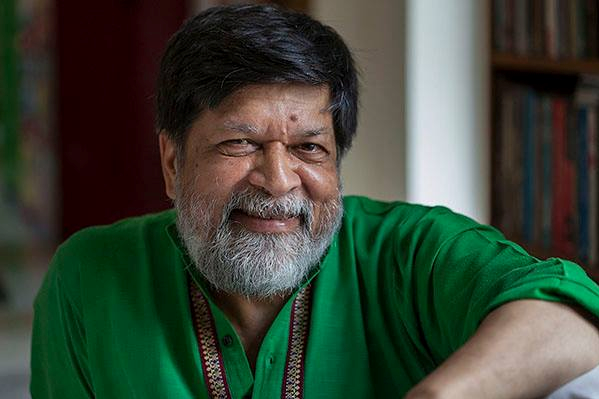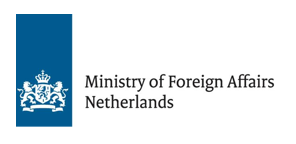Shahidul Alam’s 100-day detention must end Joint Statement
Shahidul Alam’s 100-day detention must end: Statement by Free Press Unlimited, the Prince Claus Fund for Culture and Development, and the World Press Photo Foundation
Shahidul Alam, internationally renowned photographer and activist, was forcibly taken from his home in Dhaka on 5 August. He was arrested and charged under Bangladesh’s ICT law for his public statements on recent protests.
Today marks his 100th day in prison. More than 30 distinguished artists, writers, and photographers from South Asia have signed an open letter (see below) to the Government of Bangladesh calling for Shahidul’s release. Many of the signatories are partners and laureates of the Prince Claus Fund.
In Europe, there is great concern too, and the human rights situation in Bangladesh is on the agenda in the European Parliament this week. MEP Marietje Schaake, who is also on the board of the Prince Claus Fund, is working to have Shahidul’s detention to be explicitly mentioned in the text.
Free Press Unlimited, the Prince Claus Fund, and the World Press Photo Foundation join with our friends and colleagues in South Asia and call for his immediate release.

Open Letter
H.E. Sheikh Hasina Wazed
Prime Minister of Bangladesh
Prime Minister’s Office
Dhaka, Bangladesh
13 November 2018
Subject: Appeal for release of Shahidul Alam on 100th day in custody
Your Excellency:
As well-wishers of Bangladesh and supporters of its 166 million citizens’ struggle for dignity, social justice and prosperity, we are distressed by the continued imprisonment of photographer and cultural activist Shahidul Alam.
Since the founding of the nation in 1971, the people of Bangladesh have led by example, fighting poverty, ending social injustices and being standard-bearers of participatory development. This advance has been made possible by the democratic spirit of the people, who have challenged military rulers and autocrats alike. As well-wishers of Bangladesh, we fear that these gains are in danger due to the rising political intolerance and denial of fundamental freedoms.
Shahidul Alam is a Bangladeshi citizen, but the rest of us in South Asia are also proud to call him our own, for the values of truth, justice and social equality he promotes. His work and activism are respected all over our region and beyond, with innumerable friends who admire his concern for the voiceless and marginalised. One example is his latest work highlighting the tragedy of the Rohingya people, who have been given refuge in Bangladesh by your Government.
Since Shahidul Alam was forcefully taken from his home on the 5th of August, he was remanded first in Detective Branch custody for seven days and, then held at Dhaka Central Jail at Keraniganj. He is accused of ‘hurting the image of the nation’ while reporting on protests by young students demanding road safety.
It is clear to us that the case of Shahidul Alam is being used as a means to suppress criticism by others in civil society. His arrest and continued detention appear to be manifestation of an intolerant political atmosphere, an attempt to threaten and silence the voice of Bangladeshi citizens. With the country preparing for general elections, this is a time when there should be more space for debate and discussion, not less.
As believers in the rule of law, we are shocked to learn that government lawyers continue to oppose Shahidul Alam’s release on bail using various stratagems and delays intended to deprive him of his fundamental rights to liberty and due process. Across South Asia, politicians and citizens have fought for the right to speak, and to write, and it is astonishing to us that a government today, especially one which seeks to harness technology for
progress, should choose to use a law to proscribe online speech to jail a citizen.
Prime Minister,
We the undersigned urge you to ensure the release of Shahidul Alam on this, the 100th day of his detention. We look forward to Bangladesh retaining its place as an exemplar of participatory democracy in South Asia.
Sincerely,
- Akram Khan, London
- Amar Kanwar, New Delhi
- Amitav Ghosh, Goa
- Anish Kapoor, London
- Aparna Sen, Kolkata
- Arundhati Roy, New Delhi
- Ashok Vajpeyi, New Delhi
- Buddhadeb Dasgupta, Kolkata
- Dayanita Singh, New Delhi
- Ina Puri, Kolkata
- Jayadeva Uyangoda, Colombo
- Kanak Mani Dixit, Kathmandu
- Laila Tyabji, New Delhi;
- Manjushree Thapa, Toronto
- Mohammed Hanif, Karachi
- Moushumi Bhowmik, Kolkata
- Nandita Das, Kolkata
- Nimalka Fernando, Colombo
- Patricia Mukhim, Shillong
- Pooja Sood, New Delhi
- Rachana Singh, New Delhi
- Raghu Rai, New Delhi
- Rajdeep Sardesai, New Delhi
- Ramchandra Guha, Bangalore
- Romila Thapar, New Delhi
- Salima Hashmi, Lahore
- Sanjay Kak, New Delhi
- Sanjoy Hazarika, Shillong
- Sankha Ghosh, Kolkata
- Shabana Azmi, Mumbai
- Sushila Karki, Kathmandu
- Vijay Prashad, New Delhi
- Vikram Seth, New Delhi
- Vrinda Grover, New Delhi
Note for the Editors
For more information please contact:
David Campbell, Director of Communications, World Press Photo Foundation
[email protected] | +31 6 46 24 17 47
Sarah Smith, Coordinator Communications, Prince Claus Fund
[email protected] | +31 20 3449 169



